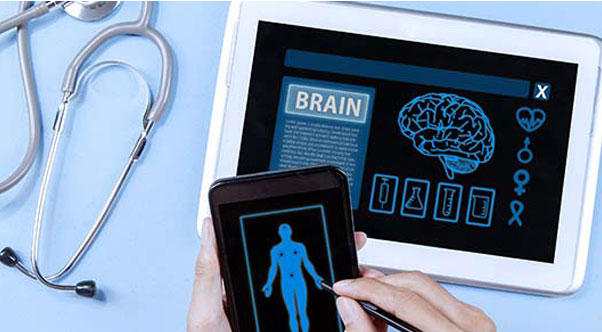Will smart devices be the smartphones of the medical device industry?
October 14, 2017

This is how the current-day situation of administering medical care runs: in the event of a medical need, the patient or someone attached to her is expected to sense the difficulty and call up the medical center to which the patient is attached. Help arrives after this is done. The medical practitioner may come over and attend to the patient at her location if the situation permits. Or else, the ambulance has to be called. All this has to done during what is called the Golden Hour: the most critical time during which delay or failure in providing care can mean patient fatality. Moreover, how does one account for human error? What if the patient or the person attending on her is not able to sense the changes that warrant medical attention?
What if there could be a system by which all these time-consuming steps could be obviated? That is, the entire process by which all these are currently happening could change to this: the medical center is connected to the patient and is able to sense the changes that trigger medical attention, and circumventing all these routes, neither rush their staff or an ambulance to the patient, but administers care right from where it is located.
This is what connected medical devices, or smart devices, could hold for the future of medical care. By enabling medical attention from the patient's end to the healthcare unit's end; smart devices have the potential to completely alter the healthcare and the medical device industry in the years to come. Smart devices simply change the source of the origin of medical care from the receiver to the provider, bringing about a fundamental shift in the manner and speed at which medical care is administered. Just like smartphones brought in a whole new, added dimension to phones; smart devices could also bring in a sort of revolution to healthcare delivery and administration.
Varied ways of administering healthcare
Another critical area in which smart devices could bring about unimaginably increased efficiency is treatments. At present, one needs to be completely attentive to these regimens. Despite the best attention, it is all but natural to skip a dosage of medicine due to various reasons. Smart devices address this issue by being an alarm system which reminds the patient to take a particular medicine at a particular time of the day.
There is yet another way in which smart devices could impact the way in which medical care is offered. We are already seeing the birth of smart insulin pumps. Implanted into the patient's body; these are small devices that carry with them a certain dose of insulin, monitor the exact sugar levels in a patient, and administer the required insulin supply according to the patient's need, all without the patient even being aware of it.
Critical to patients
A smart device such as this is often the difference between life and death for the patient. Diabetics are often at a loss to sense or anticipate spikes or drops in their sugar levels. A sharp change, when not controlled, could lead to many complications. Currently, laboratory tests that are conducted at a certain frequency -many patients do not or cannot get these done at the prescribe frequency -are way too distantly spaced. Tests done once in a month, for instance, give no real indication of what changes in sugar levels the patient underwent at a particular point of time in a day. Further, drops or rises in sugar levels at night are a serious matter for many patients.
What a smart device such as an insulin pump does is to correct all these problems. It is implanted into the body, and is constantly not only monitoring sugar levels, but also supplying the required doses on its own, without any intervention from the patient or a caregiver. Isn't this a huge difference in the way medical treatments are administered?
Some way to go
Mentioned here are just a couple of instances in which smart devices could bring about major changes into the way care is administered. The field has potential for enormous scope and growth. It is too early to suggest that we have seen the ultimate remedy for medical conditions. There are challenges, for sure. Regulatory issues are certainly one of them. The speed of regulation has to keep up with the technological change, something that is too much for already overburdened, often understaffed regulatory agencies to do overnight.
Also, the field of smart devices is still evolving, and thus has teething problems inherent in any technology. For instance, a smart insulin pump may mistake some other signal for a sugar level variation and may rush a supply of insulin when the body doesn't need it. Complications arising out of situations like this need to be taken care of. As technologies improve, it is expected that smart devices will become smarter. Their initial hiccups notwithstanding; smart devices are here to stay and are sure to radically alter the way medical care is given.